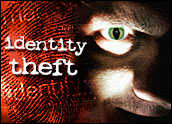
Part 1 of this three-part series describes the size and complexity of the identity fraud problem, and touches on some of the consequences that go beyond financial damage. Part 2 offers some pointers on what consumers should do if they find they’ve become victims of identity fraud.
Recovering from an identity theft case can be more than a burden on your time and pocketbook. It can also be emotionally draining, warns the Identity Theft Resource Center.
Victims frequently feel the same anger and vulnerability suffered by victims of violent crime.
Yet diligently working through the steps recommended by identity theft prevention experts should, eventually, restore your good name, wipe black marks off your credit report, and recoup virtually all, if not absolutely all, of the money fraudulently spent under your name.
So how do you prevent this from happening again?
Reducing Your Risk
Here are some steps you can take to make yourself a less-attractive target:
- Get yourself off preapproved credit offer lists and junk mail lists. This reduces the number of credit card offers in your mailbox that a thief could make use of.
- Shred sensitive financial documents once you no longer need them. The personal details contained in many documents can be used to great effect by criminals seeking to establish an identity in your name. Make sure you use a cross-cut shredder that makes papers virtually impossible to reconstruct, said Jay Foley, exective director of the Identity Theft Resource Center.
- Go paperless. Some people are afraid of receiving credit card and other statements by e-mail, and they worry that online banking could open them to even more fraud. However, having paper statements floating around is even more dangerous, said Mary Monahan, an analyst with Javelin Strategy.
By not having statements and checks floating around in mailboxes and in the postal system, consumers can reduce the number of individuals who may be exposed to sensitive information. This tactic may even eliminate human intervention altogether.
Staying grounded in the 20th Century’s paper-based economy won’t really help you anyway, Monahan warned.
“You don’t have to be online to have your identity stolen,” she said, noting the millions of Americans whose personal information has been lost or stolen as a result of data breaches. Some of that information ends up on the Internet for sale.
“What we’re talking about is replacing paper so you don’t have your statement delivered to your home every month where someone can just drive by and pick it up,” she said.
- Don’t carry checks, your Social Security card or unused credit cards with you. The less you have in your wallet, the less thieves have to plunder. Write down the information from the cards you do carry, or photocopy them front and back, so that should you lose your wallet, you’ll have a ready-made list of what you lost, complete with card numbers and telephone contacts.
- Monitor your credit reports regularly. Many experts recommend looking at one of your free credit reports every three months so you lessen the intervals during which criminals can go undetected. “The sooner you find fraud, the sooner you stop fraud and the lower your cost will be,” Monahan said.
- Consider costly credit-monitoring and identity theft-monitoring services carefully. The costs may not be worth the return in many cases.
- Never give out personal information over the Internet or telephone unless you’ve initiated the contact and you’re certain you’re giving the information to the correct people. Phishing attacks often direct recipients to a Web site that can look impressively real. Don’t ever use links from e-mails to visit financial sites. Use Web addresses you know to be valid. Same goes for telephone calls. Don’t use the customer service number listed in an unsolicited e-mail. It’s likely a criminal boiler room. Instead, look up the number from your financial records.
- Be careful how you use personal information in public. What use is sophisticated monitoring and piles of shredded credit card statements if you blurt out your credit card number while making a telephone order in the middle of a crowded office or park?
Sobering Note
You can take all the preventative steps in the world and still be a victim of identity theft.
There just aren’t any good measures in place to prevent the kind of criminal identity theft that can be a real nightmare, or to stop medical identity fraud, said Paul Stephens, director of policy and advocacy for the Privacy Rights Clearinghouse.
Even if you carefully safeguard your personal information, shred your documents and closely watch your credit, the people with whom you do business may not be as diligent.
Remember, Foley said, that every doctor you’ve ever visited, every dentist and hospital, all the banks you’ve done business with, the places you’ve applied to work, apartments where you’ve applied for leases — all have detailed personal information from you.
What’s more, there are data warehousing operations that amass huge numbers of public and business records and make them available to government and businesses for a fee.
“If they’re not protecting that information,” Foley warned, “then you’re not protected.”
Identity Fraud, Part 1: A $45 Billion Snowball
Identity Fraud, Part 2: Digging Yourself Out of the Wreckage
















































